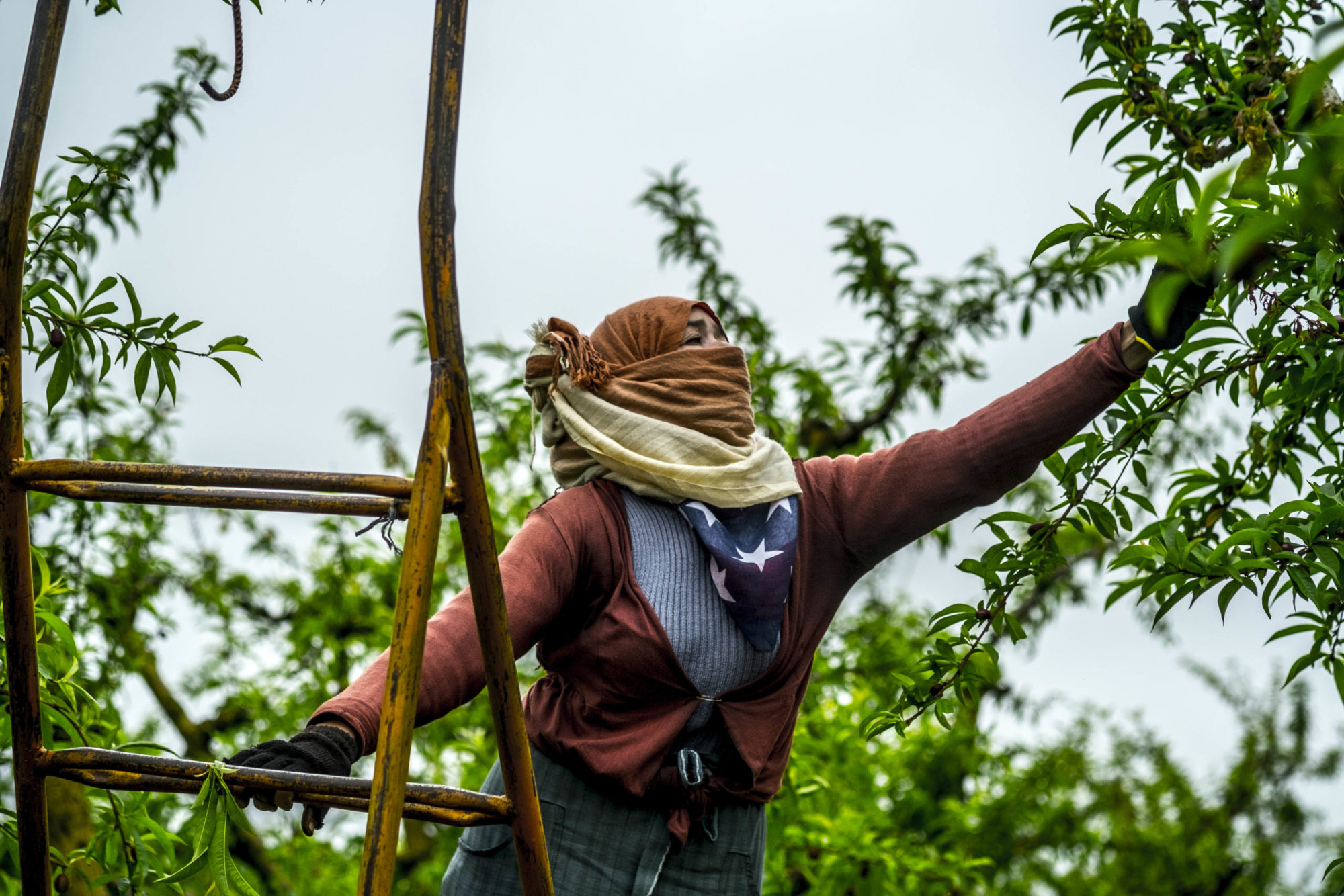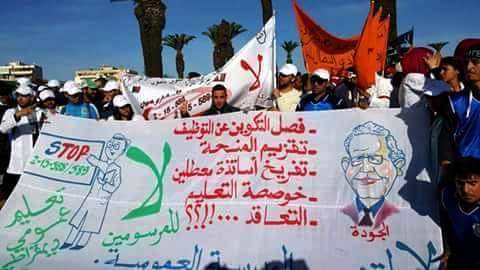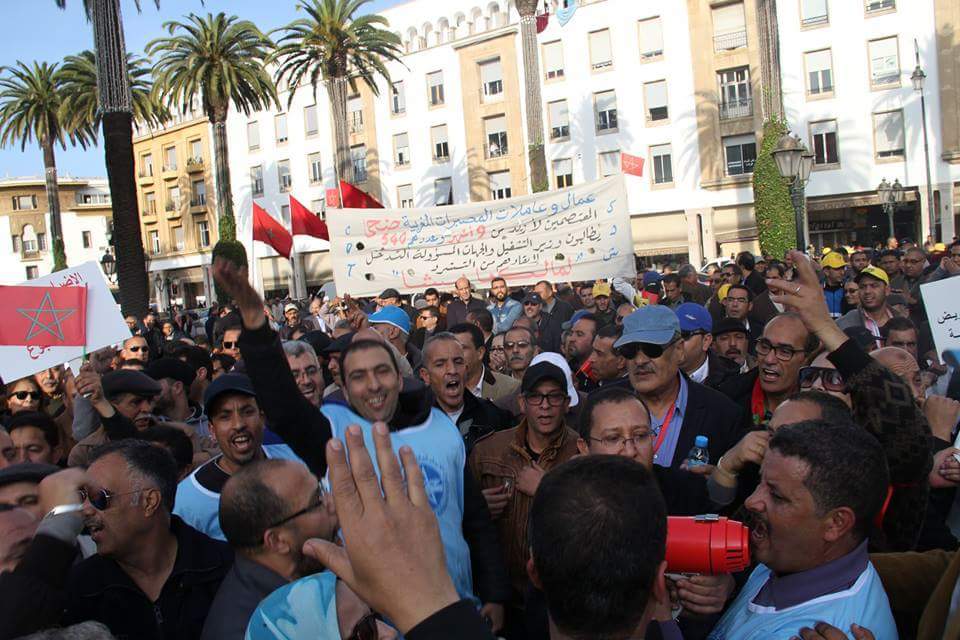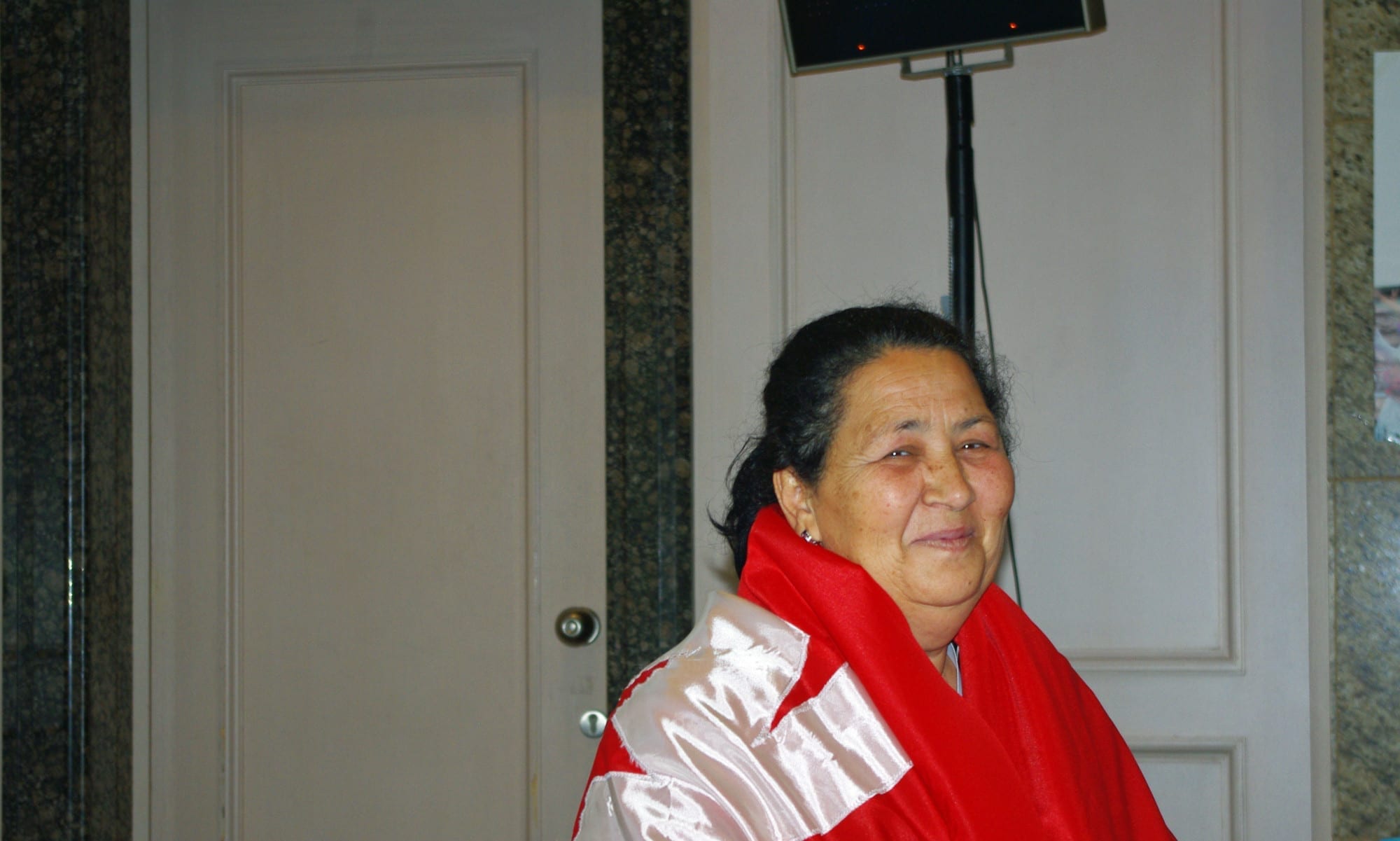Thousands of teacher trainees, holding banners reading “Marching for dignity and justice,” and chanting “We’re prepared to go to prison,” marched through the streets of Morocco’s capital, Rabat, this week to denounce two government decrees to cut scholarships and...

In Morocco, the Solidarity Center builds the capacity of workers and local unions through leadership development and advocacy for the rights of women, including agricultural workers. Credit: Solidarity Center/Zineb Arraki
Morocco Government Assaults Spur Sit-in
About four thousand workers staged a sit-in outside parliament in Rabat yesterday in a show of popular protest against socioeconomic policies that are economically harmful to working people, among them planned pension reforms, a freeze on talks with civil society...
Empowering Women, Building Leaders in the Arab Maghreb
As a young union activist in Tunisia’s railway industry, Kalthoum Barkallah was not convinced that there was a need to work for gender equality. After all, she thought, unions did not distinguish between male and female workers. But one day when she pointed out that...



